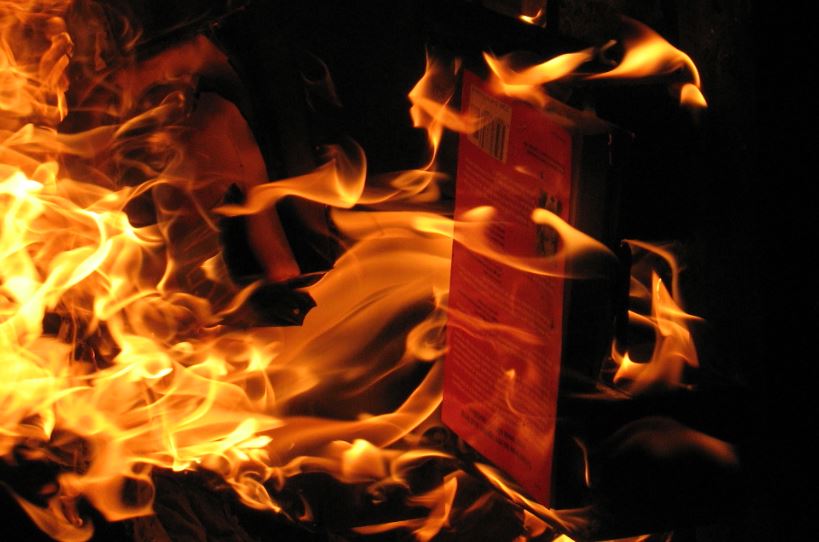Book-burning serves as a powerful symbol of the dangers of totalitarianism and ideological intolerance. It conjures up images of Nazis throwing books deemed “un-German” on bonfires. It inspired authors of dystopian novels, such as George Orwell and Ray Bradbury, to warn of the destruction of freedom which the burning of books symbolizes and represents.
Yet the burning of books is not confined to the fascist past or the dystopian future. It is very much with us today and is much closer to home than many realize. It is disguised in the nuanced way in which it is being done. There are no public bonfires and no armies of “firemen” destroying outlawed books. Instead we have book-banning as a subtle variation of book-burning. It’s not that books are being burned but that they are being banned and banished from school and college curricula.
It all began with the Marxist disdain for western civilization and was made manifest in demonstrations on college campuses demanding that “Western Civ has got to go.” These modern iconoclasts have largely succeeded in having iconic works of literature and philosophy banished from the classroom.
The banishing of the Great Books is effectively the same as book-burning, though it is accomplished by modern day thought police, not Stormtroopers. It is more subtle, yet equally seditious.
And make no mistake, the book banners have the same motivation as the book burners. They seek to wipe-out the collective memory of humanity, a shared inheritance passed down through the centuries in the Great Conversation that has animated the Great Minds of the past three millennia. This conversation, preserved to posterity in the Great Books, is not “Western” but universal. It belongs to all. It enlightens each of us and brings us closer to an understanding of ourselves and the cosmos of which we are part.
Those who have sought to banish “Western” civilization from the classroom are doing so because they are intolerant of dissident views. They are angry that the past refuses to conform to their own newfangled ideological constructs. The past must, therefore, be silenced. Just as the Nazis burned books that they deemed to be “un-German”, the neo-iconoclasts ban books that they deem to be “un-modern.”
The past is inferior. Those who lived in the past, or those who seek to live in the past through the reading of the Great Books, are untermenschen, recalcitrant reactionaries who must be excluded from the debate. There is no room for dissent in the dystopia being forged by the neo-puritans of narcissism. Like the Nazis, today’s narcissists look down their supercilious noses at the collective experience of humanity. Seeing themselves as the Herrenvolk, the superior ones, they sit in judgment on all of history, banning books and silencing those heretics who cling to tradition and refuse to conform to the new dogmas of secular relativism.
In such a scenario, it is the readers of the Great Books who become the Resistance. It is the readers of the Great Books who will restore true, authentic culture and civilization after the New Reich of relativism goes the same way as Hitler’s Thousand Year Reich.
[Photo Credit: Wiki]
















Leave a Comment
Your email address will not be published. Required fields are marked with *